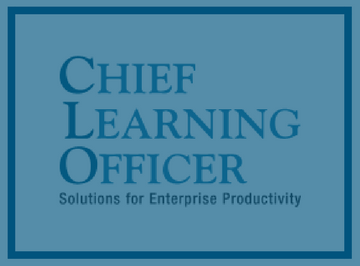A Reason to Identify and Connect Talent
A Reason to Identify and Connect Talent
At City Colleges of Chicago, college administrators and industry leaders have teamed up to align City Colleges’ curricula with the skilled jobs that companies desperately need to fill. The program, “College to Careers,” has recruited big names like UPS and other industry experts to help design curriculum and participate as teacher-practitioners. The goal: Give students access to real-world training and a path to a waiting job.
The College to Careers program is not unlike the Robotics & Advanced Manufacturing Technology Education Collaborative, known as RAMTEC, which is part of the Tri-Rivers Career Center in Marion, Ohio. To fill the manufacturing skills gap in Ohio, Tri-Rivers Career Center secured a $15 million state grant and started a career pipeline for employers by identifying their needs for talent. Tri-Rivers Career Center contacted locally based robot-makers, such as Yaskawa Motoman, to develop a robotics curriculum with industry-level instruction and certifications on versions of the same robots used by many Ohio manufacturers.
According to Bob Graff, a manager in charge of building educational partnerships for the Motoman Robotics Division of Yaskawa America Inc., employers want students to learn on the same technology they run at their facilities. Instead of taking a course on general robotics theory, undergraduates living in and around Marion — as well as high schoolers — go to RAMTEC and work with the same Yaskawa Motoman robots the industry has already deployed.
“When you know what a manufacturer’s specific hiring needs are, it’s possible to align those with the curriculum schools hope to teach,” Graff said.
The genesis for the College to Careers program and RAMTEC stems, in part, from corporate America’s struggle to fill the skills gap. Chief learning officers have a terrific opportunity to be the architects who build a longer, wider pipeline of talent beginning in our schools.
How can CLOs entice a college to team up with your company? First, look at your greatest hiring need. Determine how this need might change in the future because you will be developing a curriculum that will not begin to produce new hires at least for a few years. Next, research with your business to figure out where your skills gaps are and where the company’s instructional expertise lies. For example, if you are the CLO at a manufacturer, do you have design engineers on hand who are equal parts subject-matter expert and teacher? If so, they can be guest lecturers who augment the manufacturing curriculum you develop for your university partner of choice.
If you don’t already have partnerships in place with higher education, start by contacting educational institutions that produced your most successful hires. Begin a conversation with the president or dean of one of the university’s schools. Or contact the educational institution where a majority of your employees are doing post-graduate work.
“An honest conversation between CLO and academic dean about … focused education … is a great way to begin,” said Al Malinchak, who serves as a talent evangelist for Deltek, a software-maker for professional services firms and government contractors. “For the student, you remove a lot of graduation anxiety when you’ve groomed them for a career they can step into.”
According to Rob Lauber, chief learning officer for McDonald’s Corp., the linchpin to investing in a partnership with a City College of Chicago or RAMTEC is company leadership. Business leaders have to see a skill gap and learn that traditional recruiting methods are not enough to fill it.
It is unlikely that a partnership with a program like College to Careers or RAMTEC “will be successful if there isn’t mutual gain,” Lauber said. “I’m not sure schools and universities get this on a large scale. There are exceptions, of course.”
The exceptions, if you can find them, will lead to some exceptional branding, benefits and talent. As a CLO, you are uniquely qualified to sell the vision and the benefits of such a partnership, and make your company part of the next College to Careers or RAMTEC program.

This column was originally published in CLO.